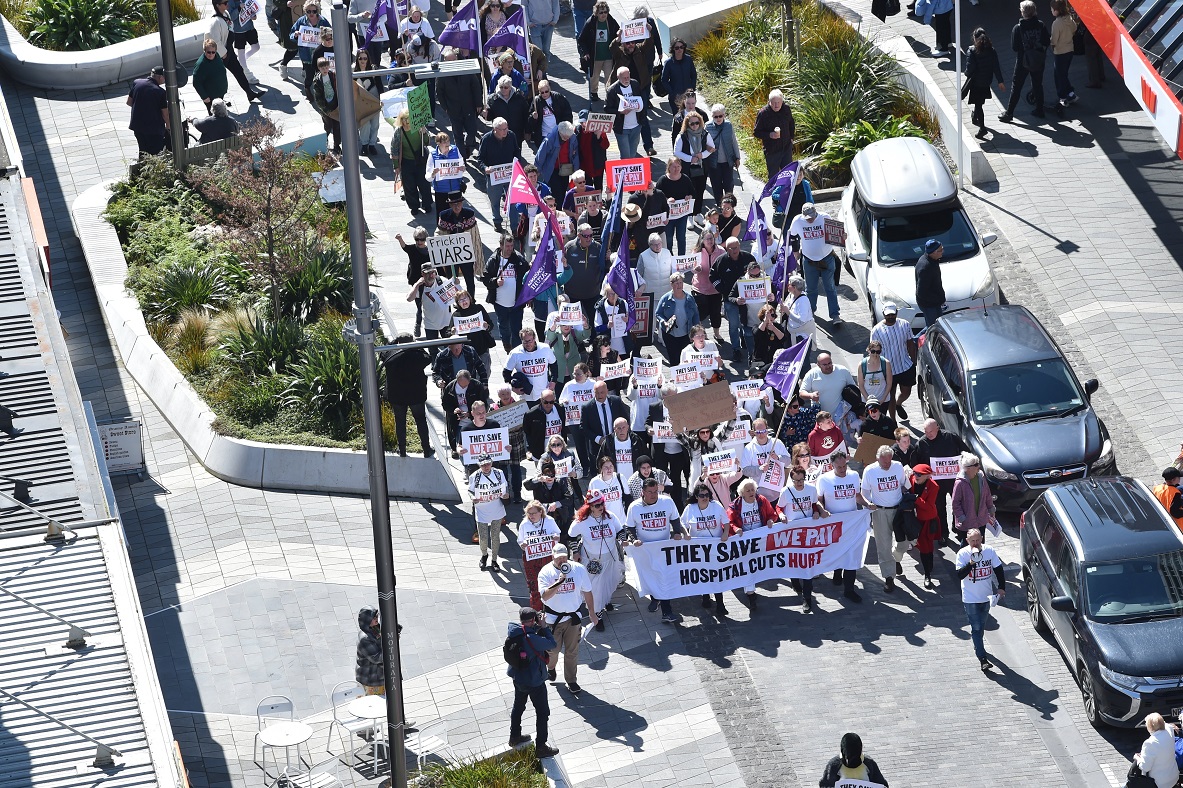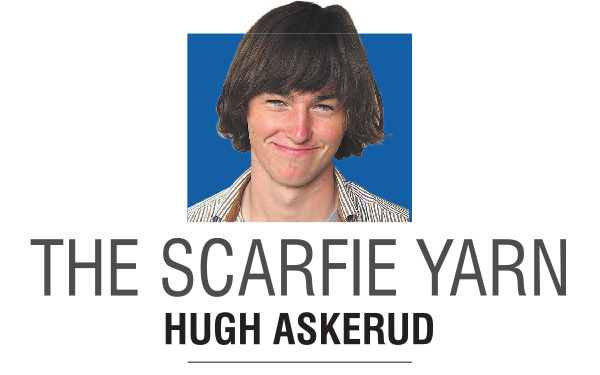
What is of key significance to me is the fact that the protest, while underpinned by a hefty degree of anger, was overall a very cheery event. When else do you get a group of thousands together regardless of identity, to join together on one key topic? Never really. More importantly, when do you see town and gown unite like they did the other day? My dreams have come true!
So, what does the hospital protest say about the future of the town’n’gown relationship? And more importantly, what do events like this say about the future of change-making in Dunedin?

In a more general sense, students use the hospital like any others. In fact, a well-functioning hospital is more important for a student populace who don’t have the benefit of their local GP.
Students are also a relatively poor lot. While many hail from wealth, studying is a reality which puts earning on hold. Part-time work etc just does not cover a visit to a GP and the wait at student health may just seem like too much for students who are perpetually time poor. I have heard stories of students rocking up in the Emergency Department just because they know things will eventually get sorted, even if that means an eight-hour wait. In short, a new hospital is a critical resource for students.
Now let’s talk about the protest. For the majority of 2024 I have been calling out for a protest. Not just because they generally succeed in getting things done but also for the fact that they bring people together.
Now, it remains to be seen whether the other day’s protest will have an impact, but what it did show is the pressing desire for people to get involved and drive on a cause. What it proved is that political apathy is not of our own making.
This is something which gives me hope for the student community. The death of Castle St, increases in broken glass, a lack of interest in student politics, many have stated that these things are a consequence of apathy. The way students rallied around the march last Saturday proves that this suggestion is simply not the case. Acting completely outside of their own interest, students rose up in a protest which outdoes anything we have seen on campus this year. Student interest is clearly there.
But if there’s student interest, what are the barriers to student action? Maybe it’s the constant constraint on time which epitomises the plight of students who have both study, work, and personal lives to juggle. Maybe, but I think the protest from the other day suggests maybe not ...
To me, the successes of the other day were down to the simplicity of the cause. "Stop the cuts!" It was a much more complex situation than that, but in a world of greys, sometimes you just need a bit of black and white.
If we are to have a serious dig at tackling some of the challenges facing us, the challenges which will be confronted by students, we need simple and clear messaging. The befuddlement of political talk is exactly why people become disillusioned with politics. If we as students are to sacrifice our time, the messaging needs to communicate that it better be worth it. All of that comes down to the messaging which we give our future generations, particularly when they are being fed so much information almost incessantly.
Saturday was a proud moment, not just for Dunedin, but for studentville as well.
• Hugh Askerud is a 20-year-old local and student at the University of Otago, majoring in politics and religious studies.











